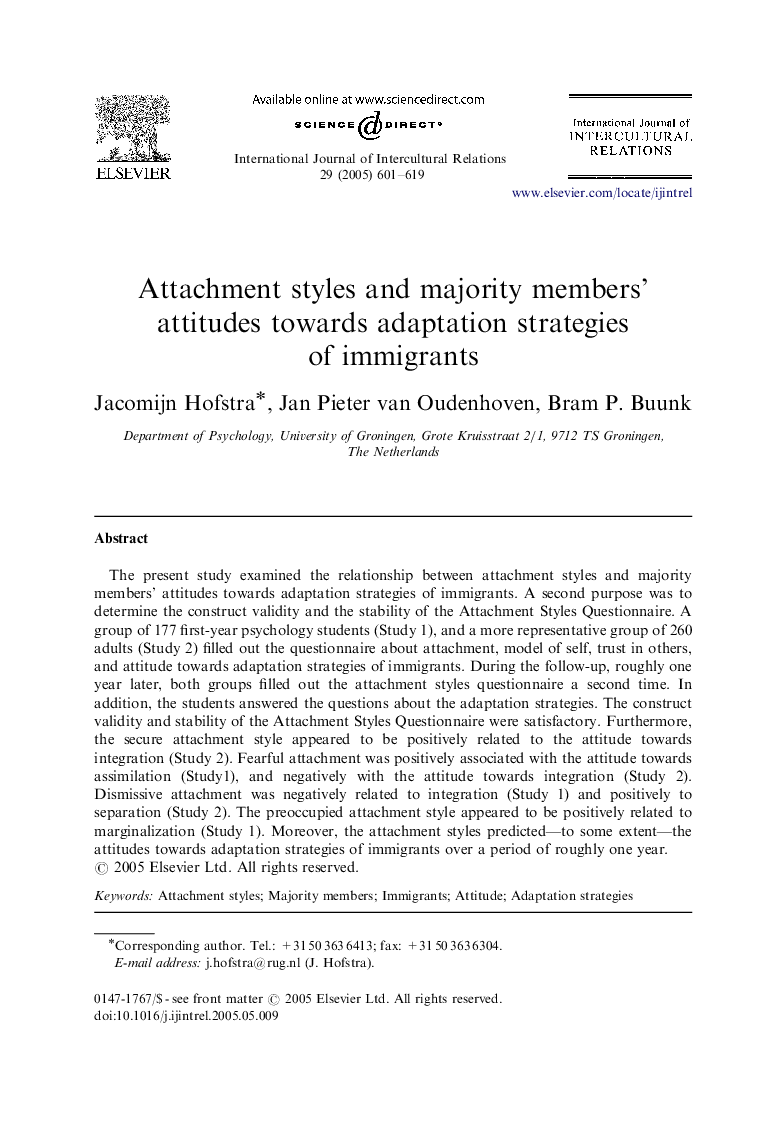| Article ID | Journal | Published Year | Pages | File Type |
|---|---|---|---|---|
| 9723827 | International Journal of Intercultural Relations | 2005 | 19 Pages |
Abstract
The present study examined the relationship between attachment styles and majority members' attitudes towards adaptation strategies of immigrants. A second purpose was to determine the construct validity and the stability of the Attachment Styles Questionnaire. A group of 177 first-year psychology students (Study 1), and a more representative group of 260 adults (Study 2) filled out the questionnaire about attachment, model of self, trust in others, and attitude towards adaptation strategies of immigrants. During the follow-up, roughly one year later, both groups filled out the attachment styles questionnaire a second time. In addition, the students answered the questions about the adaptation strategies. The construct validity and stability of the Attachment Styles Questionnaire were satisfactory. Furthermore, the secure attachment style appeared to be positively related to the attitude towards integration (Study 2). Fearful attachment was positively associated with the attitude towards assimilation (Study1), and negatively with the attitude towards integration (Study 2). Dismissive attachment was negatively related to integration (Study 1) and positively to separation (Study 2). The preoccupied attachment style appeared to be positively related to marginalization (Study 1). Moreover, the attachment styles predicted-to some extent-the attitudes towards adaptation strategies of immigrants over a period of roughly one year.
Related Topics
Social Sciences and Humanities
Business, Management and Accounting
Business and International Management
Authors
Jacomijn Hofstra, Jan Pieter van Oudenhoven, Bram P. Buunk,
